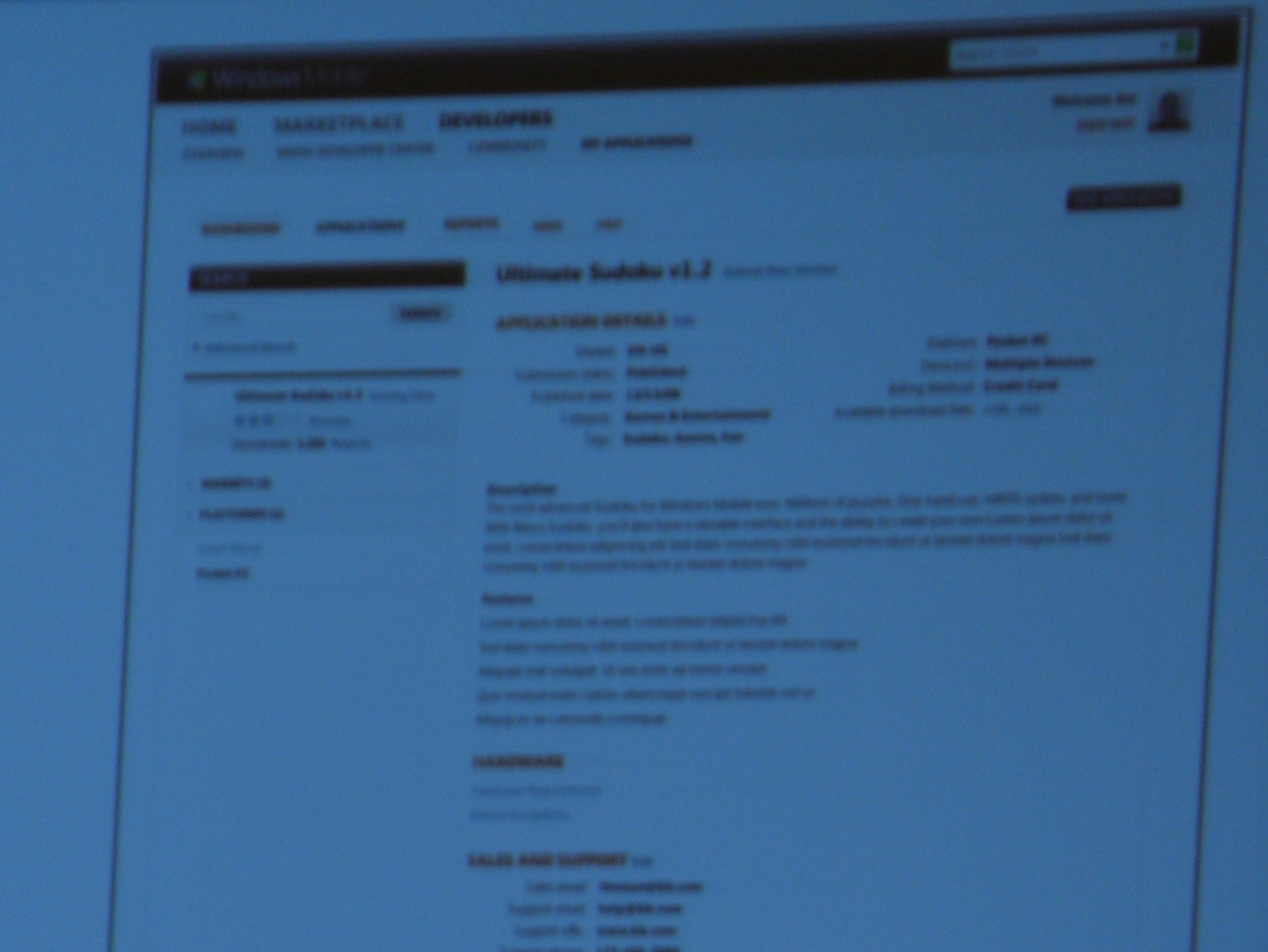Easy for devs, promises Win Mobile app store
Microsoft claims app approval more open than Apple

In contrast to Apple, Microsoft isn't cutting operators out with its mobile app store. Windows Marketplace for Mobile will offer each network a dedicated 'store within a store' as one of its six main categories of applications, which will feature apps that are co-branded by that operator.
That co-operation means buyers on most networks will get the choice of paying with their credit card or putting the cost of an app on their phone bill. It also means operators take a cut of the revenue, but that comes out of the 30 per cent Microsoft gets, not the 70 per cent that goes to the developer.
Microsoft isn't giving details of the cut that the operator gets: Senior Planner Daniel Bouie said, "The mobile operator revenue share depends on volume and on the operators in a particular market and I'm not at liberty to go into that split."
Money-back guarantee
Bouie did, however, go into details of the 'do-it-yourself refunds' users can get up to 24 hours after downloading an app, to instil confidence in the Marketplace. "If you buy something and you don't like it, you don't need to call someone or email to figure out the way to get your money back, you just hit a button." The app gets uninstalled and the user gets a full refund.
To avoid buyers continually buying apps and asking for refunds, he says, "we are also going to limit the number of refunds a user has - we're balancing the needs of users to have confidence in the Marketplace with the needs of developers to make money."
Microsoft is also trying to keep rankings fair. "We're only going to allow ratings and reviews of apps you've purchased so you won't be getting a loading of the deck from people who just don't like your app - or people who do," says Bouie.
Sign up for breaking news, reviews, opinion, top tech deals, and more.
"The ranking is a combination of the rating from users, the number of downloads and another factor - it's an algorithmic process. We're going to be doing some things to prevent gaming of the ranking system. People do some unnatural things to make sure their app goes in at the top so I'm not going to go into details of what the algorithm will look like."
Open approval process
John Bruno, a Senior Program Manager on Windows Marketplace for Mobile, claims Microsoft will be far more open than Apple about the approval process for applications, which some app developers have criticised as obscure and unfair. "We will certify apps and you will know what the criteria are up front; we want to tell you up front what it takes to get into the store. We evaluate against the criteria and you pass or fail. The results are measurable and they will be displayed on your dashboard so if you have to fix anything you can see it."
The basic tests are similar to the Windows Mobile logo testing programme, Mobile2market, which covers around 60 criteria: "Is the app well written, does it install and uninstall cleanly, does it play nice with other apps on the device - or is it malware?"
This testing is what your $99 fee goes on (in the first year the $99 annual subscription includes free testing for up to five applications; after that it's $99 per app). Because Windows Mobile apps are native C++ code rather than JavaScript or browser apps, developers can build rich applications, but Bruno says they run "close to the kernel" so Microsoft needs to ensure that apps don't cause problems for other apps or the OS itself. "The way we do that is through very vigorous testing and that testing costs a ton of money. The $99 submission fee at this point is heavily subsidised; we're going to cover not all of it but a whole lot of it."
Beyond that, apps must meet Microsoft's content and application policies. Bruno says, "The textbook example of an app type that isn't going to be allowed is gambling applications. We don't yet support apps that are themselves marketplaces; we're not sure how that is going to work out."
No free trials
At the moment, developers can offer free applications, or applications with a single price tag; "You can have a free version and a paid version, and you can decide the difference in functionality between those," says Daniel Bouie; but developers can't offer a free trial that users can pay to unlock.
He promises "as we roll out added functionality we will have a cleaner way to do it. The problem is everyone in the industry does demo and trial versions differently and if we choose one way we may [upset] others. Some people want time limited; some people want feature limited."
In future the Marketplace will allow subscription prices for apps with regularly updated content (like new maps for navigation software) and other billing models as well. This won't require new versions of the Marketplace client on Windows Mobile handsets, promises Bruno, and it will give developers a lot of different ways to make enough money to develop quality applications.
Mary (Twitter, Google+, website) started her career at Future Publishing, saw the AOL meltdown first hand the first time around when she ran the AOL UK computing channel, and she's been a freelance tech writer for over a decade. She's used every version of Windows and Office released, and every smartphone too, but she's still looking for the perfect tablet. Yes, she really does have USB earrings.